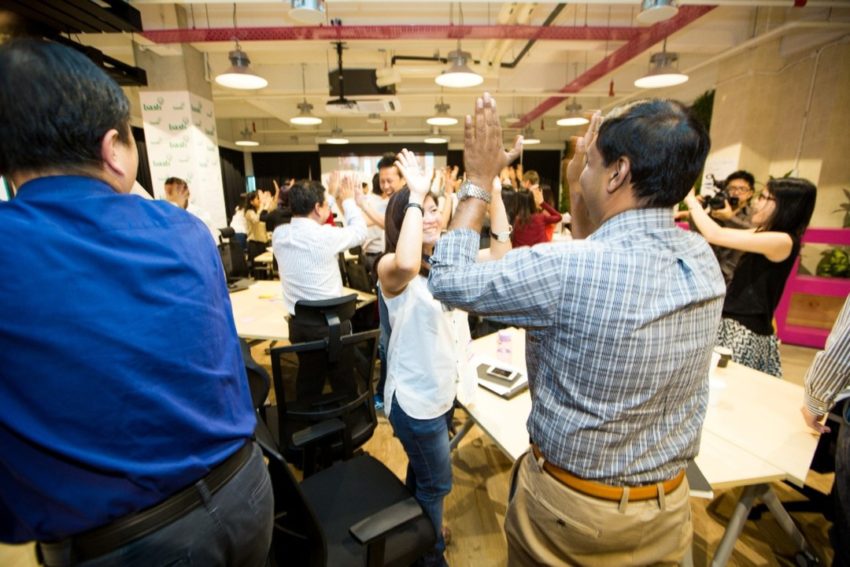Companies are not waiting to be disrupted by startups, leading to the push of corporate innovation.
68 of the world’s largest companies on the Forbes Global 500 List have interacted with startups with in the form of hackathons, accelerators, partnerships and venture funds.
Our analysis of a dozen recent initiatives, including The Coca-Cola Founders accelerator, GE Garages events and Swire Properties’ coworking space BluePrint, has demonstrated that success depends on various aspects. These include tailoring programs to suit objectives, getting top management buy-ins, getting aid from experienced partners and maintaining openness of the company.
According to a study from 500 Startups, 62.6% of the world’s biggest companies engage in open innovation with startups through corporate venture funds. There are other possible ways by which corporations can engage with startups such as crowdsourcing platforms, support services or special packages, the creation of coworking spaces, co-development or even acquisition. Which approach is best?
Corporate Innovation is Not Always About Innovation
Larger corporations partner with startups to rebuild company cultures. Serving as a source of fresh talent and ideas, startups can rejuvenate corporate culture and subsequently increase the attractiveness of the company to both customers and business partners.
The Development Bank of Singapore (DBS) has successively launched hackathons and accelerator programmes within the past two years to instill a more tech-savvy mindset among its employees. As of 2015, around 800 employees were exposed to these programmes.
Audit company Mazars initiated the #MazarsForGood Innovation Startup Challenge with the aim of becoming a more attractive brand for new talents.
“ An increasing number of potential employees are choosing the startup path over the corporate one. Millennials represent almost 80% of our staff worldwide but we don’t really give them a chance to be changemakers within the company”
explained project director David Nosibor.
Electronics manufacturer Foxconn launched the incubator Innocon with the goal of attracting hardware startups in hopes of diverting them away from smaller manufacturers with less stringent regulations.
Similarly, Swire Properties, one of the largest property empires in Asia, launched BluePrint, a coworking space and accelerator. Besides adapting to the coworking space trend and benefitting from the technologies developed by the startups, it seeks to attract growing startups looking to rent larger office spaces.
Swire properties’ co-working space, BluePrint. (Photo by BluePrint)
Japanese automobiles manufacturer Nissan launched an accelerator “to collaborate further with urban developers on smart city ideas that improve quality of life in a sustainable way” . Its objective was to expand its scope into the emerging smart city and energy markets with many opportunities within Asia.
Success of Corporate Innovation depends on Management Buy-ins
Level of risk, rapidity of Return on Investment (ROI) and level of engagement (Learn, Partner, Own) of various corporate innovation programs. (Infographic by Innovation Is Everywhere)
The adoption of a corporate strategy depends on time and financial investment. Making internal buy-ins becomes a key success factor for open innovation.
“ To see an impact, you need to get people in your company to get excited about it”
explained founding director of Innovation X Dave Lim.
Top management must embrace the open innovation process and be prepared for delayed returns on this investment.
The company’s expectations in terms of ROI and risks it is willing to take are another important consideration.
“ The companies perceived to be the most innovative by their peers are not the ones investing more in R&D.”
explained Summeet Jain, director of Intel Capital.
Such initiatives have higher risk but are also able to show quicker returns on investment.
For non-tech companies launching their first programme, selecting experienced partners helps mitigate the initial risks.
Brewery AB Inbev and Mazars collaborated with coworking space The Hub Singapore to organize their events; Foxconn partnered with Alibaba to launch another accelerator in which Foxconn provides R&D and manufacturing while Alibaba handles cloud & big data processes; India’s largest conglomerate Reliance Industries launched its accelerator program GenNext Innovation Hub in Mumbai in partnership with Microsoft Ventures; Nissan launched its accelerators in partnership with the famous tech accelerator in Hong Kong, Nest.
The “Lean Startup” Approach to Exploring Collaborative Opportunities
The “Lean Startup” approach involves the testing of strategies with smaller scale competitions before moving onto accelerators or partnerships.
Showcase at GE Garages event. (Photo by GE)
In 2012, the American conglomerate General Electrics launched GE Garages during leading technology event South by South West (SXSW) in the US. Currently, it has organized events in more than 25 locations and launched FirstBuild in 2014, a space to help entrepreneurs refine existing products by leveraging on GE’s scale and expertise.
After the running of a successful startup challenge, Mazars opened an Innovation Lab in Singapore in October 2015. The Lab’s team consists of 5 intrapreneurs who work at the co-working space Impact Hub in Singapore every Friday for 8 weeks on a new service.
“ You need to start somewhere and create some kind of electroshock to change a company’s existing culture”
added David.
Impact HUB Singapore (Photo by Hub Singapore)
Corporate innovation has to be open
Openness is a key. Offering monetary rewards is secondary in motivating startups to create better solutions. Startups expect to really engage with the company to validate their business model.
Companies look forward to exchange ideas, resources and collaborate in a transparent manner to stimulate growth.





